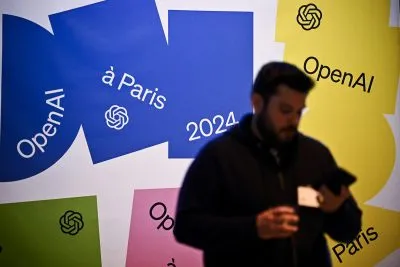In September 2016, the European Commission announced proposals for a new External Investment Plan. The plan will focus on Africa and the EU’s near neighbours and is based on three pillars: stepping up technical assistance; improving the business and investment environment; and mobilising funding through a European Fund for Sustainable Development (EFSD).
The EFSD will have seed funding of €3.35bn ($3.60bn) of capital and guarantees from the EU budget and the European Development Fund. It will also subsume the existing EU-Africa Infrastructure Trust Fund, which has paid out more than 90 grants for infrastructure projects since 2007.
In other words, it’s not a large new injection of cash. It should, however, be up and running quickly. Members of the European Parliament and ministers are expected have passed the legislation needed to make the fund operational by the next EU-Africa summit, planned for autumn 2017.
And according to the Commission’s blueprint, the seed capital is expected to trigger up to €44bn in public and private investments. If national governments across the EU agree to make their own contributions the figure could rise to €88bn.
EU officials hope that provisions allowing the European Investment Bank (EIB) to cover €750m of potential losses on projects will persuade private firms to fund riskier investments in sub-Saharan Africa. This, the Commission hopes, could enable European firms to compete with Chinese companies in Africa’s burgeoning infrastructure sector.
The Luxembourg-based EIB, which has provided nearly €13bn for long-term infrastructure and private sector investment across Africa since 2011, has been the driving force behind EU Commission President Jean-Claude Juncker’s European Fund for Strategic Investments (EFSI), on which the new fund is modelled. Based on €20bn of seed money, the EFSI has mobilised €116bn towards a €315bn target for infrastructure projects across the EU since its launch in 2015.
Political purposes
So far, so unremarkable. Like other development finance institutions (DFIs), the EFSD will only succeed if it can persuade private companies to provide the bulk of the financing. It is also part of the wider move away from conventional development aid in favour of combining public guarantees with private investment.
Yet this is not a conventional development finance vehicle. For one thing, it will be managed by the Commission itself, rather than the EIB. And while DFIs usually focus on building up domestic private sectors and development, the EFSD has an overtly political purpose.
“This will complement our development aid and help address one of the root causes of migration,” said Juncker in his September State of the Union speech. “With economic growth in developing countries at its lowest level since 2003, this is crucial. The new plan will offer lifelines for those who would otherwise be pushed to take dangerous journeys in search of a better life. It has to be done.”
The whole External Investment Plan is part of a wiser package of policies aimed at using aid, trade and other funds to encourage countries to reduce the number of migrants reaching EU shores. These include the agreement struck between the EU and Turkey – under which Brussels will pay out up to €3bn for projects in exchange for Turkey’s acting as a buffer to keep refugees fleeing the Middle East out of Europe – and the EU Emergency Trust Fund for Africa, which promotes development as a means of managing migration.
Alongside the EFSD will sit bilateral “country compacts”, under which the EU will offer financial support to countries that work to stem economic migration. These were put forward by the Commission at the beginning of June, and the first batch of deals with Niger, Nigeria, Senegal, Mali and Ethiopia, supported by another €8bn of funding, are expected to be concluded by early 2017.
The migration control dimension of the package, in particular, has prompted a sceptical reaction from MEPs, whose endorsement is needed for the fund to come into force, and the NGO community. A resolution by the European Parliament’s Development Committee has already warned that the EU Trust Fund for Africa carries a “serious risk of misuse of EU development aid, in particular in conflict-affected countries where security, migration and development issues are closely interconnected.”
“This is classic short-termism [that] is just aimed at keeping them out,” says Iverna McGowan, the head of Amnesty International’s EU office in Brussels.
Promises of a Marshall Plan
Germany’s development minister, Gerd Mueller, recently announced that his country would be launching what he described as a “Marshall Plan” for Africa, making reference to the US funding programme that helped Europe rebuild after the Second World War. According to Reuters, he said that a significant share of his ministry’s proposed budget increase of over €1bn would go to projects in Africa.
“We have to invest in these countries and give people perspectives for the future,” he told reporters on 11th November. “If the youth of Africa can’t find work or a future in their own countries, it won’t be hundreds of thousands, but millions that make their way to Europe.”
Having received more than a million migrants in 2015, self-interest is at the heart of the German plan. Encouraging European companies to invest and increase their activities in Africa is much needed, but it is no substitute for developing domestic private enterprise.
The link between finance and migration control, however, is a troubling one. In terms of investment, ambition and the political motivation behind it, the EFSD is a long way short of being a Marshall Plan.
Ben Fox
Want to continue reading? Subscribe today.
You've read all your free articles for this month! Subscribe now to enjoy full access to our content.
Digital Monthly
£8.00 / month
Receive full unlimited access to our articles, opinions, podcasts and more.
Digital Yearly
£70.00 / year
Our best value offer - save £26 and gain access to all of our digital content for an entire year!
 Sign in with Google
Sign in with Google 



